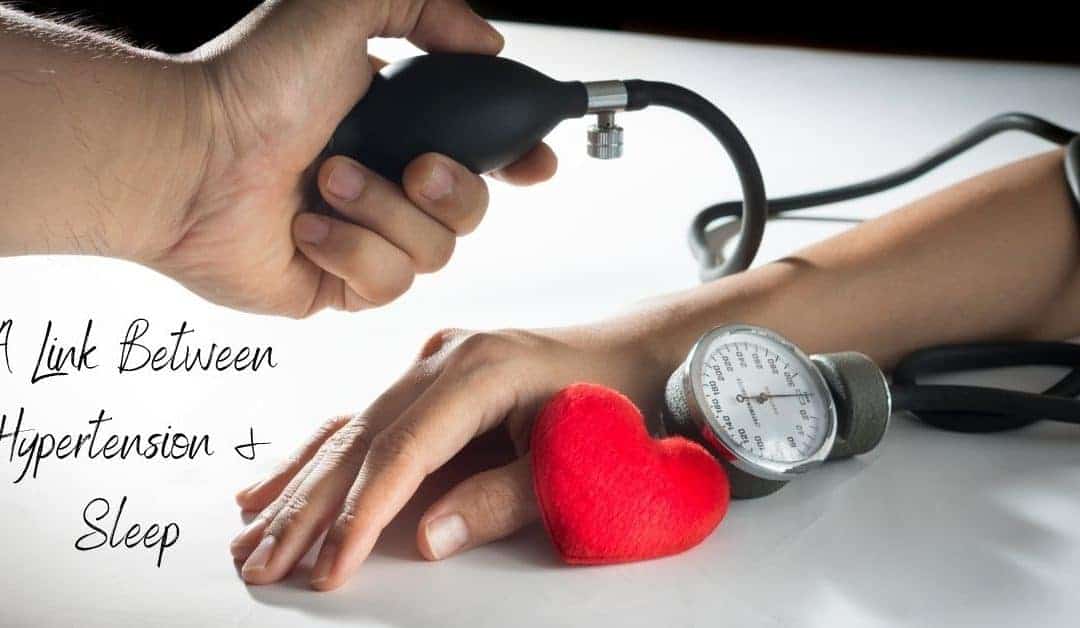Nearly half of adults in the U.S. have hypertension according to the Centers for Disease Control and Prevention (CDC). Also known as high blood pressure, hypertension is a medical condition characterized by consistently high levels of blood pressure in the arteries. 45% or 108 million adults live with hypertension which can lead to the development of significant health complications and mortality. Hypertension is a major risk factor for cardiovascular disease, heart attack, stroke, and kidney disease.
Identifying and addressing hypertension is critical to protecting overall health. Research has shown an important link between hypertension and sleep. Studies show that lack of adequate sleep can increase the risk of developing high blood pressure.
Understanding Hypertension
The heart pumps blood which is carried throughout the body by the arteries. The circulation of blood as it flows through arteries is known as blood pressure. Blood pressure changes throughout the day as we engage in different activities.
But blood pressure that is frequently elevated indicates hypertension. Hypertension doesn’t typically have symptoms so you can only know for sure by measuring your blood pressure. Hypertension usually develops over time and can be caused by:
- Lifestyle: a diet high in salt, fat, cholesterol. Lack of physical activity, excessive intake of alcohol and/or tobacco.
- Health Conditions: such as kidney disease, thyroid issues, diabetes, and obesity
Additionally, family history, medications, and pregnancy can increase the risk of high blood pressure.
Hypertension can have severe effects on overall health including damaging critical organs like the heart, brain, and kidneys. High blood pressure increases the risk of:
- Heart Attack & Disease: hypertension can damage the arteries which can restrict blood flow to the heart. This can lead to heart attack, heart disease, heart failure, and/or chest pain.
- Stroke: high blood pressure can also produce blockages in the arteries or even cause them to burst, causing a stroke. Strokes prevent oxygen from reaching the brain which can cause cognitive impairment and death.
- Kidney Disease: hypertension increases the risk of developing kidney disease.
These devastating health outcomes can impact quality and longevity of life which is why preventing hypertension is critical.
Hypertension & Sleep
According to the National Sleep Foundation, adults need between 7 and 9 hours of sleep every night. Lack of sleep can cause temporary effects like grogginess, inability to concentrate, and fatigue. But consistently receiving less than 7 hours of sleep can lead to chronic issues like sleep disorders and medical conditions including hypertension. Numerous studies show that inadequate sleep increases the risk of hypertension in adults.
In a major study published in 2019, researchers investigated the relationship between sleep and hypertension in China. The study included 19,407 participants ages 18-79 who were divided into three groups based on duration of sleep per night: less than 7 hours, 7-8 hours, and more than 8 hours. Sleep was self-reported using a questionnaire and blood pressure was also measured. Researchers found that rates of hypertension among people getting less sleep increased, specifically:
- Less than 7 hours: 37%
- 7-8 hours: 31.2%
- More than 8 hours: 29%
These statistics show that the risk of hypertension increases with inadequate sleep. Researchers suggest that sleep provides the body time to rest and recover. Sleep helps the body heal, regulate hormones, and repair tissues, muscles, blood vessels, etc.; giving the body the energy and capacity to sustain itself. Lack of sleep reduces the body’s capacity for this kind of restoration which can lead to various health issues including hypertension.
Tips for Better Sleep
A great way to reduce your risk of hypertension and improve overall quality of health is to get adequate sleep! A few ways you can get better rest include:
- Create a Comfortable Environment: do all that you can to make sure your room is comfortable for you – comfortable bed/pillows, bedding, lighting, sounds, temperature, aroma etc.
- Minimize Distractions: disconnect from electronic devices at least 30 minutes prior to sleeping, avoid eating and drinking prior to sleeping
- Establish Routine: establishing and practicing a routine can be really helpful. This can include finding ways to relax prior to bed (warm bath, soft lighting, comforting sounds etc.) and sleeping at the same time every night.
Enticare
At Enticare, our ear, nose, and throat doctors provide treatment for diseases of the ears, nose, and throat in children and adults through surgical and non-surgical techniques.Our sleep technicians can help if you have been struggling with sleep issues. Contact us today.

